#ConnectedCars
Cash in Your Chips: Automakers Ask FTC to Seek Appeal After Losing Qualcomm Case
Frequently on the cutting edges of technology, the automotive industry has been slamming chips into vehicles to facilitate communications ever since General Motors launched OnStar back in 1996. This evolved into cars boasting reliable navigation systems and remote vehicle diagnostics until they literally started becoming mobile internet hot spots.
Now the industry wants to further ingrain connectivity by equipping all vehicles with 5G — opening the road for new features and the ability to harvest your personal data more effectively.
This has required deals with tech chip manufacturers like Qualcomm, which requires companies to sign a patent license agreement before actually selling any of its hardware or software. But regulators around the globe worried the practice may be monopolistic, violating antitrust laws. The Federal Trade Commission (FTC) brought a case against the business in 2017. Despite winning that case in 2019, a U.S. appeals court overturned the decision earlier this month, deciding Qualcomm could continue conducting business as usual. Now, tech companies (mainly Qualcomm rivals) and a gaggle of automakers are urging the FTC to seek an appeal following the loss.
Auto Industry Squabbles With FCC, Promises to Use Allocated Bandwidth
Way back in 1999, the Federal Communications Commission (FCC) set aside frequencies so automobiles could communicate with surrounding infrastructure. Concepts included traffic monitoring, speed mitigation, data analysis, new opportunities for law enforcement, and improved self-driving capabilities. The industry never made much use of it, focusing instead on more independent autonomous vehicles that wouldn’t need help from the surrounding world, and which could simply communicate with each other (and manufacturer data centers) using existing wireless networks.
Annoyed that automakers had barely touched the bandwidth allocated to them, the FCC suggested handing it over to someone else in 2019. In response, the Alliance for Automotive Innovation (AAI) promised that if the commission voted to uphold the status quo on the 5.9-GHz band, the automotive sector would install 5 million vehicle-to-everything (V2X) radios on vehicles and roadside infrastructure over the next five years.
Ford Sharing Driving Data With Allstate, Plans Loyalty Credit Card
Adhering to the latest industry trends, Ford has made a deal with insurer Allstate to share customer driving data and plans to issue a loyalty credit card tied into its rewards program. While the latter is in the service of retaining customers (with the help of Visa) in the second quarter of this year, the insurance partnership is technically already active. The Blue Oval is by no means the only automaker involved in such programs.
Like other automakers, Ford has already partnered with insurance companies in regional programs aimed at assessing how customers drive, using the collected information to adjust policies. Originally, this involved devices installed with the customer’s consent that transmitted telemetric data back to home base. Later versions were able to use on-board systems in conjunction with a downloadable app. Now, with connected cars becoming the norm, Allstate says it can just get the information directly from vehicles via manufacturer data centers.
California's Data Privacy Laws Could Stymie Auto Industry's Long-term Plans
Pretty much anytime automotive data acquisition becomes the topic of discussion, we have to take time to mention customer protections and ask where the line for privacy should be drawn. With social media firms making a mint off the process online and automakers conducting major moves to likewise leverage personal data, it’s practically a nervous tic at this point.
Hoping to get out ahead of some of the potential problems arising from issue, California enacted new consumer protection laws that came into effect at the start of the year.
The California Consumer Privacy Act (CCPA) aims to give individuals greater control over the personal data being harvested. Most of this is supposed to be done by allowing consumers to request what kind of information is being collected, ask where it’s going, and the ability request that the subsequent sale or continued acquisition of personal data cease. However, CCPA contains provisions for customers to ask a company to delete all information it has stored on them, as well as rules prohibiting any discrimination related to a person exercising their privacy rights.
Frankly, it all sounds rather good to someone who prattles endlessly about data privacy rights, but it’s also causing problems for the automotive industry.
Toyota Thinks Connected Wiper Data Can Improve Weather Forecasts
Toyota and Japanese weather information provider Weathernews Inc. have been running tests aimed at improving the accuracy of rain forecasts by using driving data from connected cars — or, more specifically, their windshield wipers. Based on the assumption that wiper operations correspond with the presence of precipitation, matching the severity to speed settings, the pair feel they can leverage customer information to close info gaps created by low-altitude rain clouds that are difficult to track.
With an official announcement issued earlier this month, both companies are framing this as an effective way to bolster roadway safety and offer new services to its customers. But it also raises the usual round of privacy concerns re: connected vehicles, while potentially offering some interesting and useful features — like localized flood warnings and other traffic advisories.
Toyota's Doing Mobility Stuff – Some a Little Creepy, Rest Kind of Fun
When an automaker discusses mobility, they’re not really talking about anything specific. The term has been established within the industry as a catch-all phrase for electrification, app-based services, autonomous programs, data acquisition, robotics, and whatever other ideas that don’t fit neatly within a company’s core product line. Providing the best example of the term’s nebulous nature this week was Toyota, which showcased a glut of mobility projects for the 2020 Olympic and Paralympic Games — as well as toying with the idea of handing over vehicle data to the Japanese government.
Let’s start with the concerning aspects before we get into the goofy stuff.
Attention Automakers: Ajit Pai is Not Your Friend
Two decades ago, the Federal Communications Commission decided to allocate a portion of the radio frequency spectrum for Dedicated Short Range Communications ( DSRC). The plan was to utilize that slice of the airwaves for ultra-modern automotive technologies relating to vehicle-to-vehicle and/or vehicle-to-infrastructure communications. Unfortunately, there hasn’t been a whole lot of activity on those channels.
The automotive industry was concerned it might need dedicated frequencies for use in autonomous-vehicle applications or some, yet unknown, technological advancement. But cable companies are annoyed that it’s being “wasted” and have started to antsy. They’ve asked the FCC to revoke carmakers’ exclusive rights to the frequencies and reallocate the majority of the 5.9-GHz band to the Wi-Fi systems that currently carry internet traffic for cable customers.
Hoping to encourage the commission to see things its way, Ford took FCC Chairman Ajit Pai out for a ride in an extra-special F-150 to plead its case. However, I feel like I can already predict whose side he’s going to take on this issue… and it isn’t going to be the automakers’.
BEV Fires Encourage China to Get Serious About Battery Safety, Vehicle Monitoring
China is currently the largest proponent of electric vehicles on the entire planet. The nation has even incorporated BEVs as a significant part of its complex strategy to overtake the United States the dominant global superpower. However a sudden influx of battery related fires has caused it some trepidation, even though there hasn’t been much evidence to suggest they are actually more prone to catching fire than gas-powered vehicles.
Regardless, the People’s Republic is now demanding that manufacturers conduct routine inspections on electric cars. China’s Ministry of Industry and Information Technology says all companies must conduct checks on BEVs, focusing on battery waterproofing, battery boxes, charging points, high-voltage wiring harnesses, and even the wear of mechanical components. They will also be required to report on repairs and any incidents that might indicate a problem. According to the ministry’s press release, they have until October to submit their findings.
Mercedes-Benz Wants You to Purchase Options Digitally After Your Car Leaves the Factory
Daimler is updating its “Mercedes me” app to include on-board purchases via a virtual store, available across the globe. With the 2019 Mercedes-Benz A-Class, B-Class and GLE, customers can even order some optional equipment online after purchasing their vehicle. According to the manufacturer, customers can subsequently purchase digital radio, smartphone integration with Apple Carplay or Android Auto, and enhanced navigation. Think of it like downloadable content (DLC) in video games or new apps for your phone, only for your car’s MBUX infotainment system.
While it’s handy to have the ability to add optional equipment remotely, we’re always hesitant to praise anything that monetizes digital content. DLC and microtransactions have really pitted the gaming community against publishers, resulting in some pretty heinous schemes to nickel and dime the customer base. Now, the trend has moved beyond the borders of that industry and into the automotive sector.
Putting a Stop to Stopping: Jaguar Land Rover Testing Green Light Speed Advisory Tech
Jaguar Land Rover has announced it will implement Green Light Optimal Speed Advisory (GLOSA) technology on a trial basis. The system utilizes vehicle-to-infrastructure (V2X) connectivity, allowing cars to “talk” to traffic lights while informing drivers of the speed they should travel to avoid having to stop.
GLOSA isn’t a new concept. In fact, it’s been kicked around for years as a potential way to minimize congestion and improve urban traffic flow. The theory involves creating a network of traffic signals that perpetually communicate with connected automobiles and encourage the vehicles to self-regulate their speed. The system works with timed signals, though implementing adaptive signals is believed to further improve the system’s overall benefits.
Right of the Dial: FCC May Open Automotive Safety Radio Frequency for Telecom Use
The Federal Communications Commission has decided to review how the radio spectrum intended for wireless communications should be divided. While a seemingly normal part of its duties, the reassessment could open up a part of the spectrum that was previously reserved for automotive applications. The super-high 5.9 GHz frequency reserved for cars was deemed important because it would help enable low-power connectivity in remote and high-density areas, allowing for vehicles to more reliably transmit information between each other and the infrastructure. This was framed by the interested parties as essential for helping to develop safe, autonomous driving systems but it could likely also work to aid any data-based services they offer in the future.
Meanwhile, cable companies, the telecom industry, and internet service providers (ISPs) don’t think it’s fair that automakers are getting their own slice of bandwidth when they’re not even using it yet. Carmakers have been working on vehicle-to-vehicle (V2V), vehicle-to-infrastructure, and dedicated short-range communication (DSRC) for years without much in the way of consumer applications.
Opening Pandora's Box: GM Tracking Consumer Listening Behavior in Cars
General Motors has begun surveying how its drivers experience in-car multimedia, specifically the radio, as part of its new strategy to track customer habits and maximize the profitability of information. With 4G LTE WiFi connectivity now featured inside millions of GM vehicles, the automaker believes technology can be used to fine tune its future marketing strategies.
While an invaluable insight tool for advertisers, it’s also the perfect example of the kind of thing we’ve been complaining about for the last couple of years. General Motors is leaning into Big Data as hard as possible, meaning your personal information could soon be on the line — if it isn’t already.
Toyota's Self-driving Car Plan Still Incorporates the Driver, Calls Bullshit on Level 5 Autonomy
Despite being one of the largest manufacturing giants currently in existence, Toyota is trailing in the autonomous technology war currently raging among carmakers. But it would unfair to say that the Japanese brand is losing. While General Motors appears to lead the rest of the established automotive firms, it’s not perfectly clear how big a gap it made for itself. Meanwhile, Toyota spent the last few years taking a more cautious approach, without ever ignoring the possibility of an autonomous future.
In 2015, the automaker decided to get serious, saying it would invest billions of dollars into the Toyota Research Institute. The goal? To advance robotics and artificial intelligence to a level where it could test an autonomous vehicle by 2020. But Toyota remains skeptical of the rest of the industry’s progress on self-driving cars.
“I need to make it perfectly clear, it’s a wonderful, wonderful goal,” Gill Pratt, the CEO of the Toyota Research Institute said at CES 2017. “But none of us in the automobile or IT industries are close to achieving true Level 5 autonomy, we are not even close.”
Talking Cars: Amazon Lets Loose Alexa Software Kit for Infotainment Systems
You’re likely familiar with Amazon’s cloud-based virtual home assistant Alexa. She’s the little voice that lives inside the Echo, a device which allows consumers to manage their calendar, set alarms, create a shopping list, adjust the thermostat, play music, and a multitude of other functions all via voice command. However, if you’re anything like me, you probably just ask Alexa to tell you bad jokes and read the morning news.
Alexa has found her way into cars lately — most notably those produced by Hyundai, thanks to a partnership with Amazon. But it looks like she’s about to find her way into a whole bunch more. On Thursday, Amazon announced the Alexa Auto Software Development Kit, which provides developers a way to easily integrate all of Alexa’s functions into automotive infotainment systems.
The Car As a Wallet: Hyundai Adds Food, Gas, Parking for In-Car Payment Plan
Corporate partnerships and integrated purchasing solutions are all the rage right now in the auto industry. While it’s easy to miss the appeal, as credit cards are pretty easy to use when cash isn’t an option and most modern phones have similar applications, car-based transitions are on the rise. Now, Hyundai’s joining Xevo to provide its own branded in-car purchasing platform.
Like similar services, Hyundai owners will be able to sync their credit card with the vehicle and use it to locate and buy food, fuel, and parking (from participating companies). Also under development is the Hyundai Digital Wallet, “which stores a customer’s payment information and facilitates secure processing, for a seamless checkout experience to enable in-car commerce.”
Hyundai hasn’t established an official launch date — or nailed down the final design — but it insists the system is coming. Initial partners include Chevron and Texaco-branded gas stations, Applebee’s To Go and ParkWhiz. Out of the three, the parking solution seems the most useful by far. But if you absolutely refuse to get out of your seat to procure a bundle of mozzarella sticks, Hyundai (like GM) will eventually have you covered.



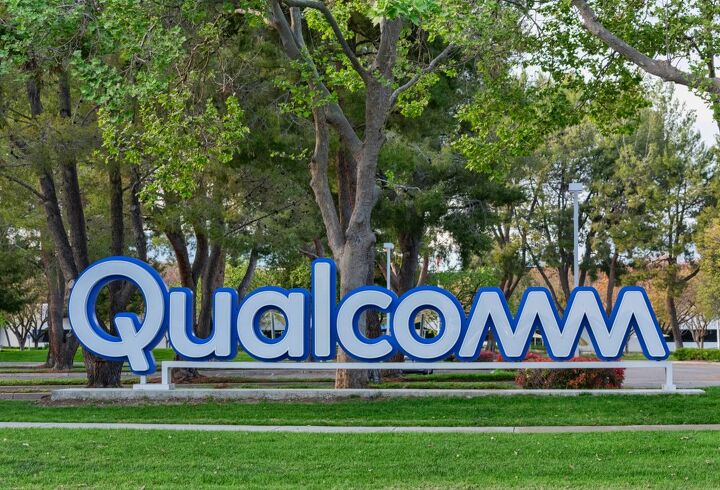

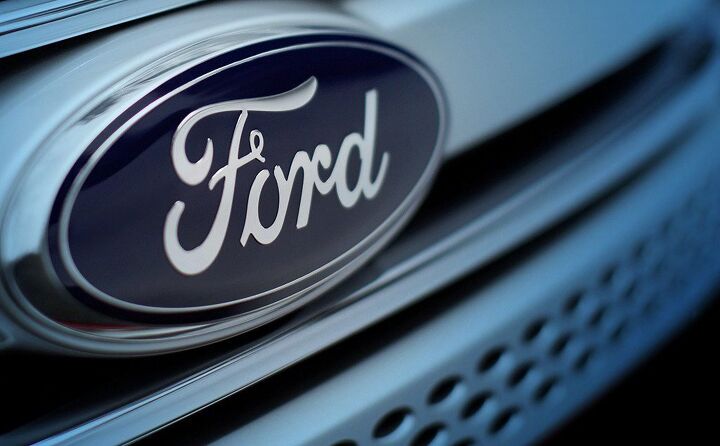


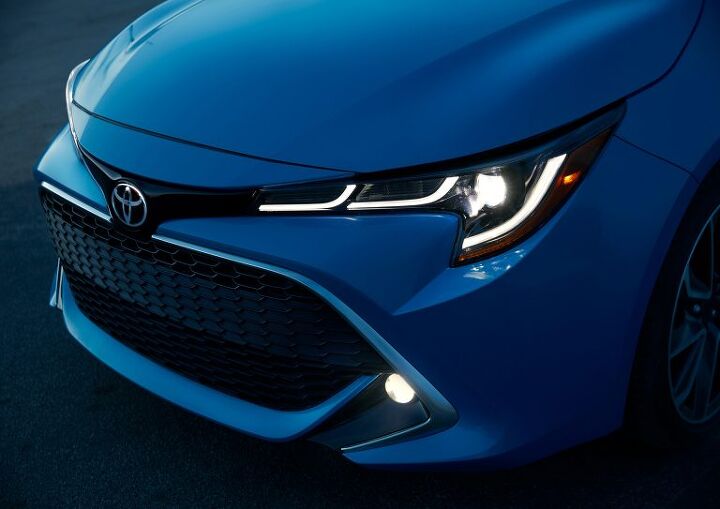



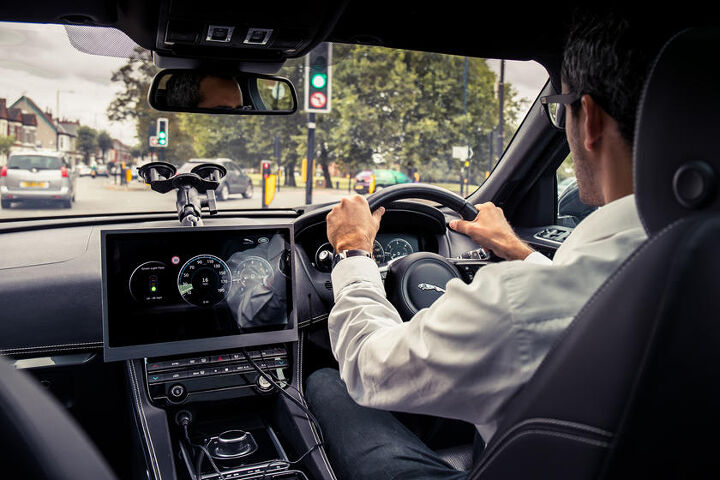

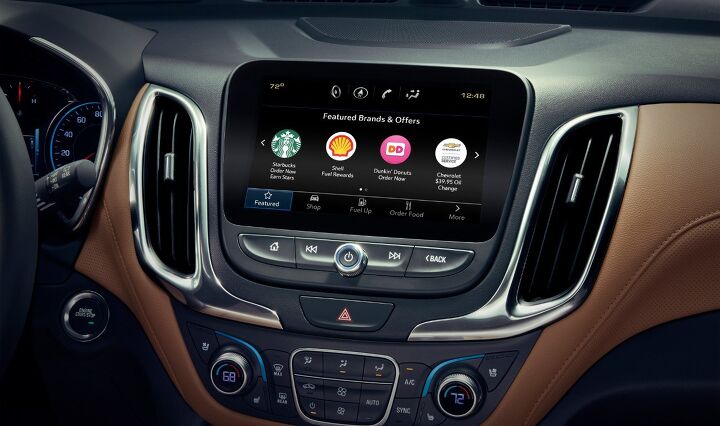
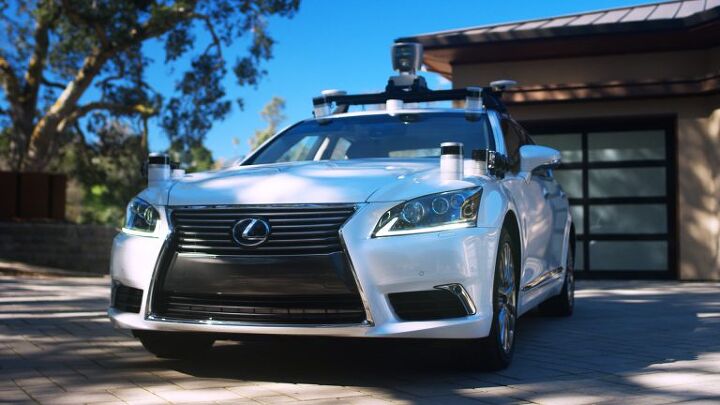














Recent Comments